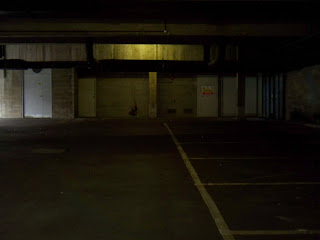Noise pollution
n.
Environmental noise that is annoying, distracting, or physically harmful.
The World Health Organisation recently published information and figures exposing the health effects of noise pollution. This includes the 2011 publication: Burden of Disease from Environmental Noise. Quantification of Healthy Life Years Lost in Europe, which 'summari[s]es the evidence on the relationship between environmental noise and health effects'.
The World Health Organisation recently published information and figures exposing the health effects of noise pollution. This includes the 2011 publication: Burden of Disease from Environmental Noise. Quantification of Healthy Life Years Lost in Europe, which 'summari[s]es the evidence on the relationship between environmental noise and health effects'.
The noise pollution experienced by city dwellers is a synthetic phenomenon of their environment, and some will be exposed to high levels of urban noise twenty-four hours-a-day. Human tolerance of the extent of city volume is in a sense, a defence mechanism. The physical and psychological affects can go unnoticed or disregarded as a normal reaction to the pace of living found in cities. It appears through studies however, that they can be more severe than first imagined.
All the information on recommended noise levels; health effects of noise exceeding these limits, and the causes of high noise pollution can be viewed at: http://www.euro.who.int/en/what-we-do/health-topics/environmental-health/noise.
City noise is unavoidable. It is a natural result of the activities/population/density etc of the environment, but I was begged the question: Does silence in the city exist? Is there any escape from the noise?
City noise is unavoidable. It is a natural result of the activities/population/density etc of the environment, but I was begged the question: Does silence in the city exist? Is there any escape from the noise?
Silence
n.
1. The quality or condition of being or keeping still and silent.
2. The absence of sound; stillness.
3. A period of time without speech or noise.
Inspired, I made several journeys; each attempting to discover silence in the urban environment, and to record it's affect on me. I chose to record my findings both in written and visual formats.
Inspired, I made several journeys; each attempting to discover silence in the urban environment, and to record it's affect on me. I chose to record my findings both in written and visual formats.
Five cities: Birmingham, Preston, Manchester, Liverpool, Leeds.
























































